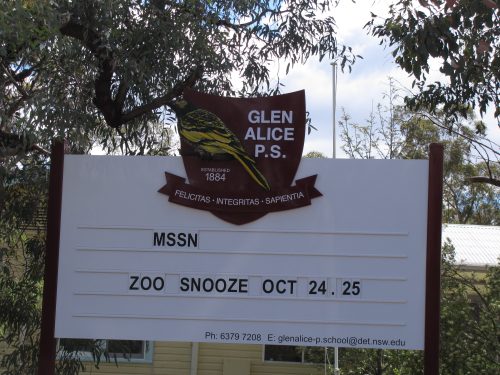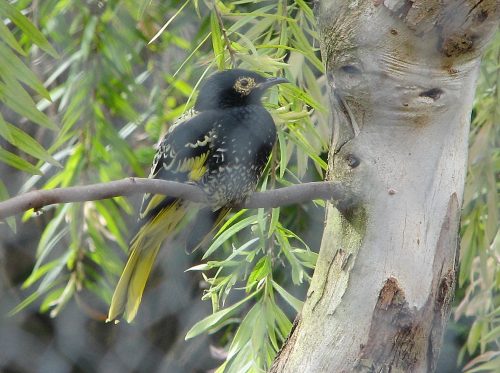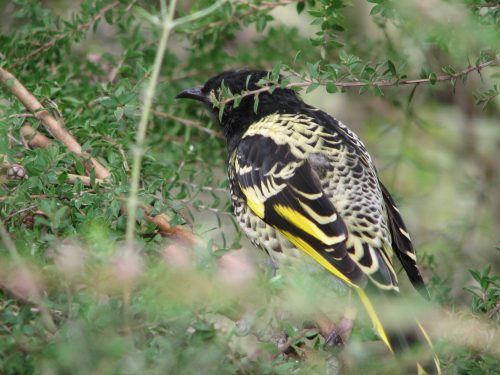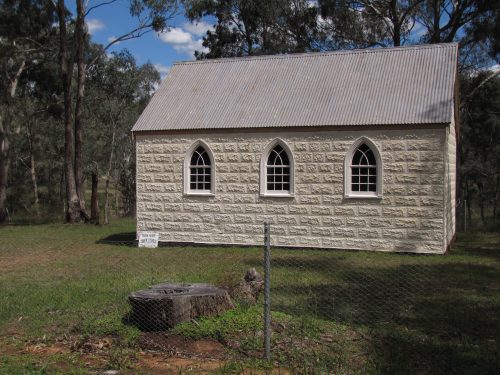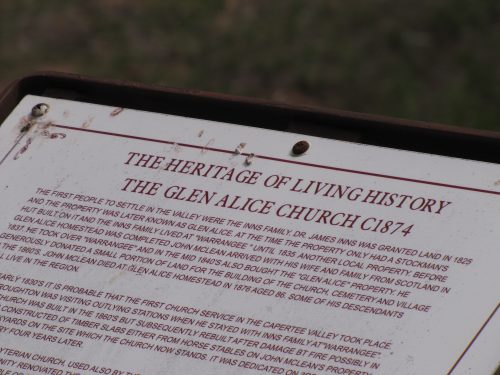Glen Alice Primary School and birds
In recent posts here I have written about our visit to the Capertee Valley last year. You can read about this visit by clicking on the links in the “related reading” section below.
In my last post, I highlighted the birds I saw in and near the small village of Glen Alice. We had afternoon tea there and this gave me the opportunity to do some birding. As we were driving through the town, we went past the local primary school. I was really taken by the school emblem or crest on their notice board, and I actually backed up the car and took a photo of it. Not many schools feature a bird as their school emblem. Good for them.
Zoo Snooze
The sign also informs the community that the children were going on a camp-over ‘Zoo Snooze’ on the following two days. This was probably at the Western Plains Zoo near Dubbo. The zoo is just over 200km to the north-west and it often caters for overnight stays by school groups.
Threatened birds
The fact remains that this valley is one of the strongholds of the Regent Honeyeater, one of our most threatened species of birds here in Australia. This interesting honeyeater is found throughout the Capertee Valley where suitable habitat exists. Sadly, much of its natural habitat has been cleared for farming over the years. Its natural range extends from south-east Queensland, through eastern New South Wales and into north-eastern Victoria. Nowhere is it common and conservation efforts have a focus on preserving this species and increasing its preferred habitat through revegetation programmes.
During our time in the Capertee Valley, I was not fortunate enough to see a Regent Honeyeater. In fact, I am sure that it is one species I have yet to see in the natural environment. The photos above and below were taken in a walk-through aviary in the Cleland Wildlife Park near Adelaide. This park is one of several zoos attempting to breed populations of this species, some of which have been released back into the wild.
Related Reading:
- Glen Alice in Capertee Valley
- My first birding visit to Capertee Valley
- Threatened birds of Australia – Regent Honeyeater
- Capertee birder – an amazing collection of articles about the birds of the valley and sound files of some of the birds.
Quaint old church
Near where we stopped to have afternoon tea, there was an old historic church, opened in about 1874. It sat comfortably in amongst the gum trees in a typically Australian bush setting. If I had been involved in building the church, I might have insisted that the windows be made much bigger. In that way, I would have been able to admire God’s amazing creation just outside. Knowing my tendency to get excited about birds, it might have also been a big distraction from what was occurring inside the building, or what was being said. Sigh. (I have been known to actually make lists of birds seen through a church window while the service is in progress.)
The little sign leaning against the wall facing my camera reads “Glen Alice Union Church.” Below the photo of the church, I have included a photo of the sign just inside the fence. I am annoyed that I didn’t capture the whole sign which gives a little of the history of the area.
Theatened Birds of Australia
Today in the mail I received the latest newsletter of the Threatened Bird Network, a sub-group of Birds Australia.
I read the newsletter while finishing my lunch and having a cuppa.
I knew that large tracts of Australia have been cleared, but to have the stark facts in print in front of you comes as a shock. I quote:
‘With a third of Australia’s woodland vegetation cleared, and over 80% of the temperate woodlands converted into agricultural land, it comes as no surprise that one in five of our temperate woodland dependent birds are threatened. This equates to over 40 species, including the nationally endangered Swift Parrot and Regent Honeyeater.’
I haven’t yet had the pleasure of seeing a Swift Parrot in the wild and can’t recall seeing one in captivity. The only Regent Honeyeater I’ve seen is the one featured here on this page, and that was in a walk through aviary at Cleland Wildlife Park near Adelaide.
Such beautiful birds. Sad that their very existence is under threat.
